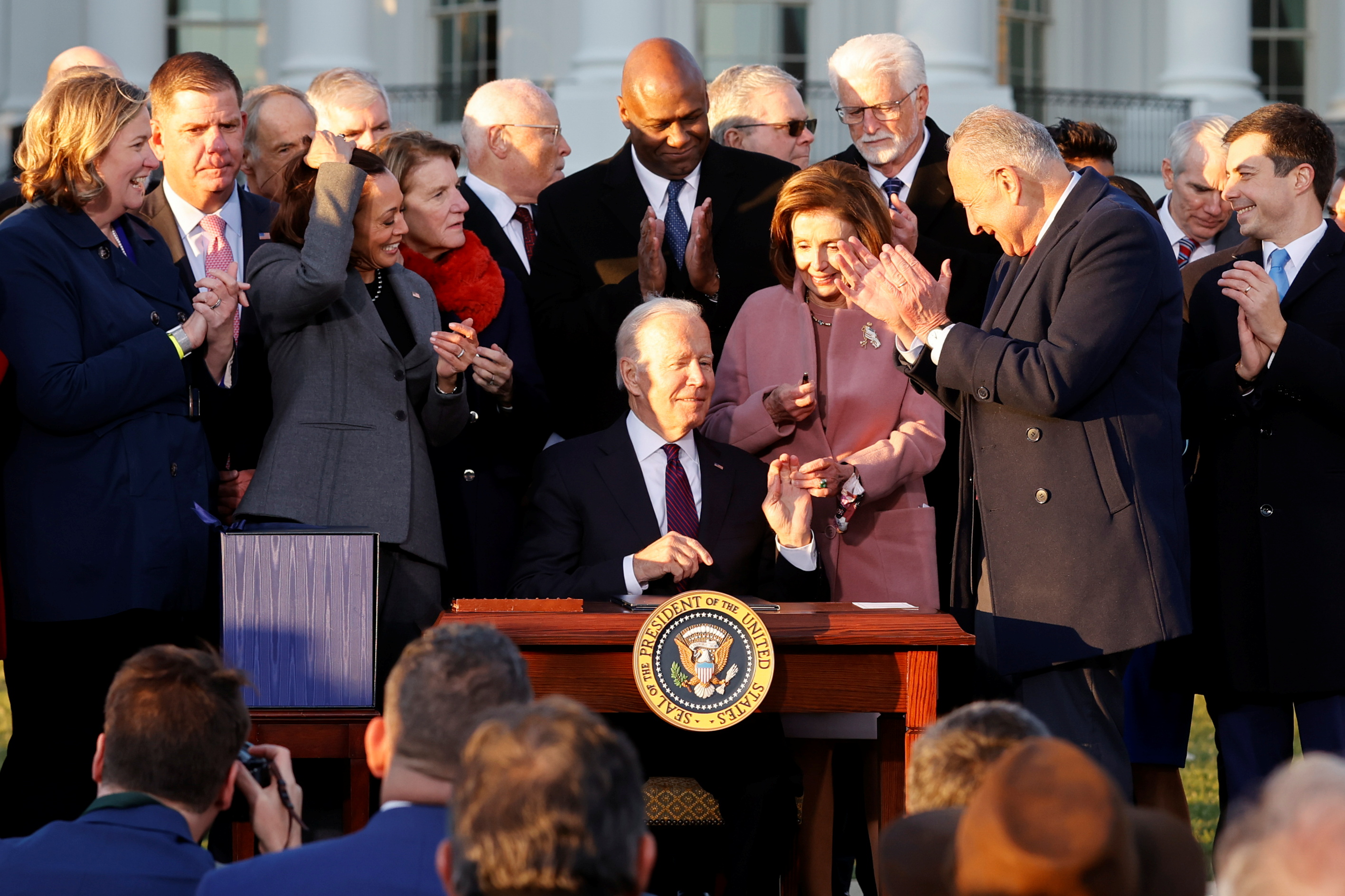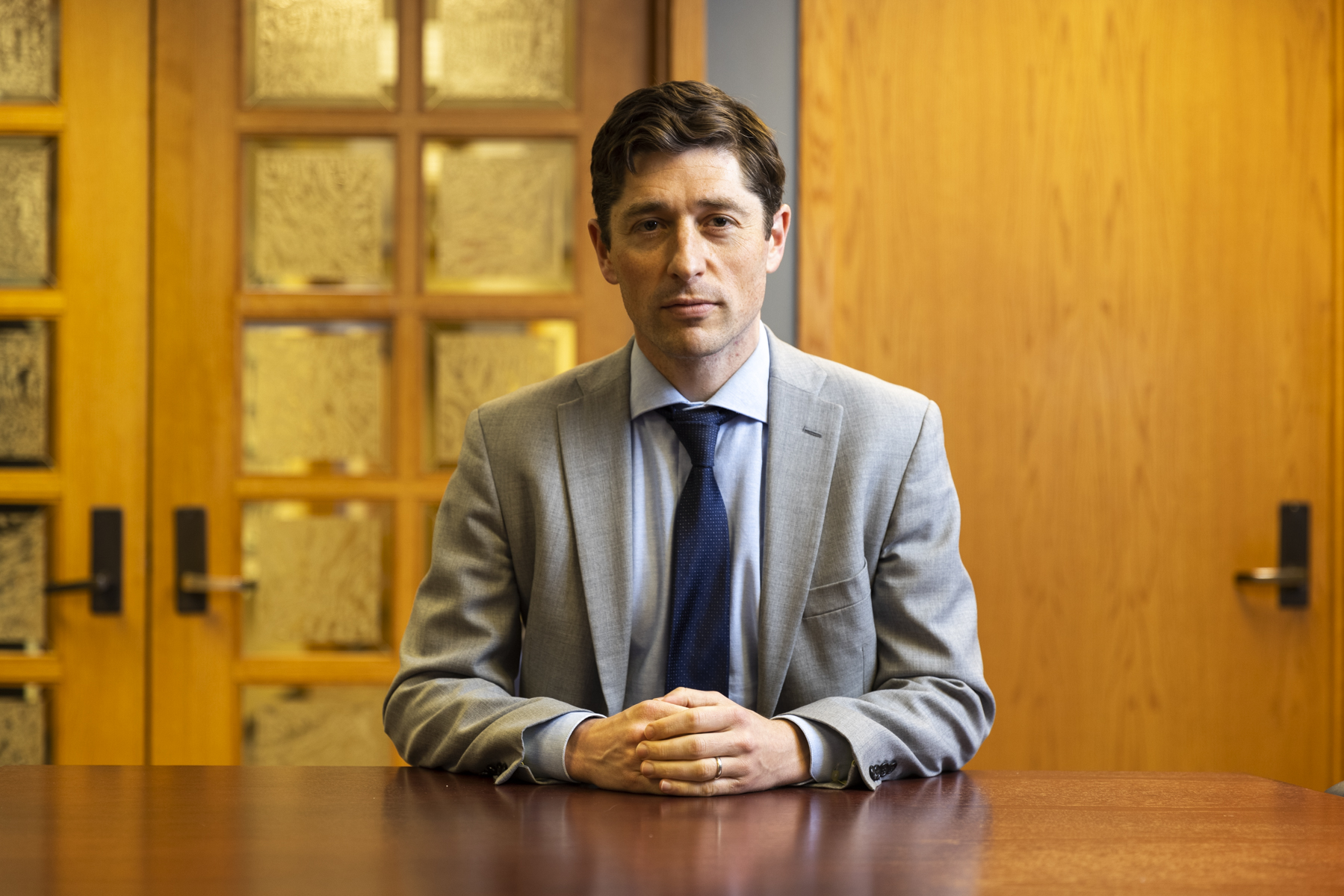
Такое американское изобретение, как самолет, таит глубокий символический смысл. Подъем на высоту, отрыв от оков земного притяжения, и вместе с тем - постоянная опасность падения вниз. Символика авиаполетов и авиакатастроф проходит нитью через всю историю прошлого и нынешнего веков.
Одно поколение (66 лет) отделяет первый успешный полет братьев Райт и высадку на луну в 1969.
Затратная лунная программа продемонстрировала способность американского правительства планировать и осуществлять сложные проекты.

В следующее десятилетие 1970ых годов рейтинг доверия американцев к своему правительству обрушился - он упал с пика в 77% в 1964 до 27% в 1980. Сыграли роль разные факторы - недовольство части белых американцев реформами гражданских прав, война во Вьетнаме, скандал Уотергейта...
Приход Картера в 1976 стал первым осуществлением фантазии о "белом рыцаре" (или "
Моисее"), который
прискакивает со стороны и наводит наконец в Вашингтоне порядок. Фантазия затем повторялась раз за разом с Рейганом, Клинтоном, Бушем, Обамой, пока не выродилась в фарс с Трампом. Победа Байдена впервые за последние полвека привела президентскую администрацию со слаженной компетентной командой. Прежде, чем следить за полетом нового политиоческого самолета, оглянемся на уходящую эпоху.
Эволюцию общественного сознания в течении 1970ых хорошо иллюстрируют два фильма: серьезный "Airport" (1970) и пародийный "Airplane!" (1980).
"Airport" - фильм-катастрофа по роману Артура Хеийли, в котором слаженные действия экипажа и наземных служб аэропорта сажают самолет в трудных погодных условиях и с пробоиной от бомбы на борту. Это - гимн компетентности. Фильм собрал команду великолепных актеров и имел оглушительный успех, заработав $128 миллионов при бюджете в $10 миллионов.
В "Airport!" ситуация авиакатастрофы превращается в фарс, в котором царит полный хаос, а компетентностью и не пахнет. Этот фильм также имел оглушительный коммерческий успех и породил новый жанр пародийных кинокомедий.
Неудивительное продолжение истории - старший из братьев Цукеров, создавших "Airplane!", помешался на консервативной политике. К выборам 2008 он снимал несмешную комедию "An American Carol".
Фильм провалился в прокате и имеет рейтинг в 12% на сайте Rotten Tomatoes. Художественной ценности не представляет, но интересен набором политических штампов.
"As entertainment, An American Carol ranks below YouTube clips of Sarah Palin."
https://www.rottentomatoes.com/m/an_american_carol/reviews?type=top_critics
Но вернемся в 1980. Прискакавший в Вашингтон Рейган начал свое президентство и протянувшуюся за ним полвековую эпоху разгромом профсоюза авиадиспетчеров.
Среди девяти судей в нынешнем составе Верховного суда шесть - члены Federalist Society, одной из самых успешных консервативных организаций, основанной в 1981. Организация пестует юристов со студенческой скамьи, чтобы выращивать из них консервативных судей с выраженной повесткой. Сорок лет напряженной работы ныне начинают приносить долгожданные плоды.
Корни Federalist Society по признанию ее основателей - конфликт в Йеле вокруг приглашения
Уильяма Шокли, основателя Кремниевой долины и, в более поздние годы, оголтелого последователя
псевонаучного расизма.
"William Shockley, a scientist who achieved national notoriety by claiming that blacks have a lower I.Q than whites, was invited by some students to speak at Yale. A controversy soon developed over whether he should be allowed to speak. Judge Winter begins his keynote address by recounting the events surrounding that controversy. It was the Shockley incident that first brought Judge Winter together with Gene Meyer, now the Executive Director of the Federalist Society. Judge Winter was then a professor at Yale and Meyer a student. At the time, Judge Winter and Mr. Meyer were incensed by the University's handling of the Shockley incident and commiserated with each other. Both felt that the University had compromised its commitment to academic freedom. Although Judge Winter and Mr. Meyer had no taste for the substance of Shockley's views, they were adamant about his right to air them, and faulted the University for berating those students who invited Shockley while choosing not to discipline the hecklers who denied him the right to speak."
https://digitalcommons.law.yale.edu/fss_papers/1196/
После того, как в апреле 1974 студенты сорвали выступление Шокли, Йель жестко наказал зачинщиков протеста и создал специальную комиссию из профессоров и студентов для выработки рекомендаций по защите "свободы слова".
Yale University suspended 11 students Friday for their alleged roles in leading disruption of an April 15 debate between controversial Stanford University professor William B. Shockley and William Rusher, publisher of the National Review.
The Yale College Executive Committee suspended the 11 students for next fall's semester, and said that they would be placed on probation upon their return in January 1975 for the spring semester. The committee said, however, that the students could apply in August for readmission for the fall term.
In addition, the executive committee decided to withhold a degree from a graduating senior, subject to review prior to the May 20 commencement date.
The disturbance occurred when 150 chanting and stomping members of the audience prevented Shockley from presenting his view on the hereditary basis of intelligence.https://www.thecrimson.com/article/1974/5/13/yale-suspends-11-for-halting-debate/Комиссия во главе с профессором Вудвордом выпустила отчет, в котором рекомендовала принимать дисциплинарные меры в отношении тех, кто мешает высказываться выступающим: "Disruption of a speech is a very serious offence against the entire University and may appropriately result in suspension or expulsion." Отчет открывался цитатой из судьи
Оливера Холмса "If there is any principle of the Constitution that more imperatively calls for attachment than any other it is the principle of free thought - not free thought for those who agree with us but freedom for the thought that we hate".
Только один из 13 членов в комиссии, студент, не согласился с выводами большинства и добавил к отчету свое особое мнение: "I agree that free expression is an important value, which we must cherish and protect. But it is not the only value which we uphold, either in our society or in our universities. Under certain circumstances, free expression is outweighed by more pressing issues, including liberation of all oppressed people and equal opportunities for minority groups."
https://yalecollege.yale.edu/get-know-yale-college/office-dean/reports/report-committee-freedom-expression-yale
На следующий год, в апреле 1975 Шокли триумфально вернулся в Йель и, уже без неуместных протестов, презентовал свои идеи. Пригласивший Шокли будущий глава Federalist Society, в то время - президент местного отделения организации YAF (Young Americans for Freedom), организовал выступление в виде дебатов. Шокли дебатировал с Биллом Рашли, издателем консервативного журнала
National Review и одним из основателем YAF. Рашли был согласен с Шокли в обозначении проблемы (генетической неполноценности афроамериканцев), но был несогласен с предлагаемым решением (государственной программой стерилизации неполноценных), поскольку, как убежденный консерватор, не мог со спокойной совестью доверить правительству решать какие-либо проблемы.
Rather than pitting Shockley against a geneticist, or even a man who is committed to an anti-racist view, the Young Americans for Freedom choose National Review publisher William Rusher '50.
The tone of the debate would be clear from the outset. Earlier that day Rusher slammed Shockley for forming what he considered conclusions that "are in the main line liberal."
Some friction did exist between the two. The National Review publisher charged in his first 20-minute segment that he would oppose the government stepping in and sterilizing allegedly genetically inferior blacks. But his view was not formulated out of humane considerations. Rusher simply said he could not, in good conscience, trust the government to run a railroad," let alone do a good job of sterilizing the nation's blacks. But Rusher never contested any of Shockley's theories. <...>
"Our reasons for bringing Shockley here are three-fold," a YAF law student began. "We wanted to refute his statist views (on government intervention into private lives); we wanted to vindicate Yale's students after their performances last year, and to check Yale's commitment to free speech." But YAF president Eugenc Meyer explained this strange free speech test with a neat historical analogy: "The problem of Hitler was not that he spoke, but that he was allowed to shut people up."
Shockley spoke first in his grandfatherly tone, deftly turning talks of sterilization into a defense of motherhood, and racial inferiority into easily sliced apple pie.
He made the sterilization of Negro rural women, whom he labelled the most genetically inferior, sound so innocuous as to be something even Johnny Carson would be willing to tackle.
The almost totally white audience reacted warmly to Shockley, greeting him with the applause usually worthy of a debate winner. But that should have been predictable. YAF had filtered out any possible dissenters, either by their exclusionary ticket policy--100 of the 265 seats went to YAF members--or by the deterrent of more than 20 plainclothesmen who checked and rechecked the stubs, and searched for cameras and tape recorders, banned from the event for fear of some sort of insurrection. Those in the first row had to be careful at the end of the debate not to be trampled by autograph seekers and congratulators. who thanked Shockley for braving the 600 protesters upstairs.https://www.thecrimson.com/article/1975/4/23/shockleys-racism-circus-comes-to-yale/Rusher hungered to be an activist, and in 1957 accepted an offer from William F. Buckley Jr. to become the publisher of National Review, succeeding Buckley himself, with the promise that he “would not only supervise the magazine’s business side but also participate in all major editorial conferences and decisions.” At N.R., as the staff called it, Rusher hewed to a very hard line indeed. He also bridled at the magazine’s high church, Tory aspect, and pushed for a more populist tone. When Buckley denounced the John Birch Society, Rusher objected, for fear of losing readers and influence within the conservative movement. He urged Spiro Agnew not to resign from the vice presidency, and he admired George Wallace, whom Buckley condemned as a “dangerous man.” Rusher also flirted with the idea of creating a third party to boost his hero Ronald Reagan’s chances, which he mooted in his manifesto “The Making of the New Majority Party.” But it proved unnecessary. Rusher, an early advocate of a “Southern strategy” for Republicans, helped guide the party along its current populist course. The irony was that Rusher himself — a dignified, remote, fastidious man — was something of a snob. He skipped Nixon’s first inauguration to go to the Hotel Pierre in Manhattan, where the Confrérie des Chevaliers du Tastevin, a wine-importing society, would “ ‘knight’ him as a full member at its annual initiation dinner (white tie preferred, ladies welcome),” Frisk relates.https://www.nytimes.com/2012/07/08/books/review/if-not-us-who-by-david-b-frisk.html
Через месяц Рональд Рейган,
готовящийся к вступлению в президентскую гонку, записал обращение к YAF, в котором четко изложил консервативную философию веры в волшебство рынка и отказа от правительственного вмешательства:
"Our banner should ... proclaim our faith in the marketplace as the greatest provider for our people, and that we will eliminate needless regulations and restrictions that keep the marketplace from being able to provide the jobs our people need. And on that subject, let us also proclaim compassion for those who through no fault of their own cannot provide for themselves, see that their needs are fully met. But at the same time, let us say that all those who are able-bodied, will be given an opportunity to work for their welfare grants. We will not make them lifetime recipients of a dole, as clients of an ever-growing welfare bureaucracy.
We must extend our compassion to that great group of unsung heroes, the working men and women of this country who ask nothing of government but to be left alone. They make the whole system work, but for a long time they haven't been fairly represented in government.
Today they see themselves falling further and further behind unable to afford the good life they've earned and deserve. Political demagogues for the last four decades have been appealing to the worst in us, the tepidity and selfishness of human nature. They've been telling us that each one of us can have a bigger slice of pie but we have to help them take it away from someone else who's been getting too big a share. Well I think it's time for us to tell those political demagogues, we can all have a bigger slice of pie if government will get out of the way, and let the free enterprise system bake a bigger pie."
https://conservapedia.com/Ronald_Reagan%27s_Address_to_Young_Americans_for_FreedomОдновременно за счет освоения технологии массовых рассылок укреплялось движение "New Right", которому
предстояло сыграть ключевую роль в рейгановской коалиции. В их рассылках предлагалась
немного иные формулировки: "Are you as sick and tired as I am of liberal politicians who: (1) force children to be bused? (2) appoint judges who turn murderers and rapists loose on the public? (3) force your children to study from school books that are anti-God, anti-American and filled with most vulgar curse words? (4) give your money to communists, anarchists and other radical organizations? (5) do nothing about sex, adultery, homosexuality and foul, language on TV? If so, why don't you join The Conservative Caucus?"
https://www.newspapers.com/newspage/451359640/Билл Рашер, присоединившийся к "New Right", писал: "I suspect that the most important contribution of the New Right to the cause of conservatism is neither theoretical nor technical, but emotional. There is something in the sheer passion of the members of the New Right that is impossible to weigh, but which unquestionably has an impact on events."

Волшебная сила рынка породила такие технологические прорывы, как
персональный компьютер, но начинает выдыхаться с возникновением гигантских монополизированных корпораций, изо всех сил избегающих конкуренции. На рынке труда перманентная сортировка работников на "элиту" и "быдло" также идет вразрез с идеалами
классического либерализма и порождает
токсичные отношения с двух сторон, эксплуатируемые политиками и политтехнологами.
Через сорок лет после прихода "неолиберализма" Рейгана ситуация начинает ломаться - в политике Джо Байдена в США, а также Олафа Шольца, преемника Ангелы Меркель на посту
лидера свободного мира.
Germany’s vice-chancellor and finance minister, Olaf Scholz, has this summer surprisingly lifted his Social Democratic party (SPD) above Angela Merkel’s Christian Democratic Union (CDU) in opinion polls, in large part due to a reputation for rational decision-making and fiscal prudence that mirrors that of the outgoing chancellor.
In a wide-ranging interview with the Guardian, Scholz said he would also use the political victory within his reach to kickstart a fresh debate about how to redefine professional and social merit.
“Why did Britain vote for Brexit if it was against its own interest? Why did America vote for Trump? I believe it is because people are experiencing deep social insecurities, and lack appreciation for what they do,” the 63-year-old said before a campaign rally in the university city of Göttingen, in Lower Saxony.
“We see the same dissatisfaction and insecurity not just in the US or the UK but in the Netherlands, Sweden, Denmark, Finland, Norway, Austria or Germany – countries that may look from the outside like they don’t have any problems at all.
“Among certain professional classes, there is a meritocratic exuberance that has led people to believe their success is completely self-made. As a result, those who actually keep the show on the road don’t get the respect they deserve. That has to change.”
Centred around the word “respect”, Scholz’s campaign borrows heavily from Harvard philosopher Michael Sandel’s recent writings on the “tyranny of merit”, and he told the Guardian he had been left “shaken” after reading the British sociologist Michael Young’s 1958 book The Rise of Meritocracy.https://www.theguardian.com/world/2021/sep/08/olaf-scholz-merit-society-not-be-limited-top-earners-germany-electionПолитический философ Майкл Сэндел:
"Debates about who deserves what abound in contemporary politics. On the surface, these debates are about fairness: Does everyone have a truly equal opportunity to compete for desirable goods and social positions?
But our disagreements about merit are not only about fairness. They are also about how we define success and failure, winning and losing — and about the attitudes the winners should hold toward those less successful than themselves. These are highly charged questions, and we try to avoid them until they force themselves upon us.
Finding our way beyond the polarized politics of our time requires a reckoning with merit. How has its meaning been recast in recent decades, in ways that erode the dignity of work and leave many people feeling that elites look down on them? Are the winners of globalization justified in the belief that they have earned and therefore deserve their success, or is this a matter of meritocratic hubris?
At a time when anger against elites has brought democracy to the brink, the question of merit takes on a special urgency. We need to ask whether the solution to our fractious politics is to live more faithfully by the principle of merit, or to seek a common good beyond the sorting and the striving."
https://news.harvard.edu/gazette/story/2021/01/the-myth-of-meritocracy-according-to-michael-sandel/Джо Байден в октябре 2021:
I remember when we moved down to Delaware and my dad would say, “Joey…” — and all my friends know this — I mean, literally, this phrase — you’ve heard him say it I don’t know how many times — “Joey, a job is about a lot more than a paycheck. It’s about your dignity. It’s about respect. It’s about being able to look your kid in the eye and say, ‘Honey, it’s going to be okay.'” And think about it. Think about what it is — it means a lot more than just whether you get a paycheck. It defines who you are, in his mind.
And I learned that at the kitchen table in Scranton — the place where you take care of one another.
And as I said, my mother — I used to stutter badly when I was a kid. If Tommy Bell and Charlie Roth and all of my old friends were here at St. Paul’s, you know, I — my nickname was “Blackbird.” It was, “Bi-bi-bi-blackbird.” It wasn’t meant as a compliment.
And I wasn’t very big, but — you could beat me, but I’d hurt you. (Laughter.) You think I’m kidding; I’m not.
And — but, you know, it’s one of those things that — I was fortunate because the people I was surrounded by — our neighbors in Scranton, as well — that people — people stuck up for you — stuck up for one another.
And my mother used to say — and I never quite understood it: “Remember, Joey, look at me — look at me, Joey. You’re a Biden.” I’m — like I’m a DuPont or something. You know what I mean? (Laughter.) I swear to God. “You’re a Biden. Nobody is better than you, and everybody is equal to you. Nobody.”
The point I’m making is: The truth is, Scranton isn’t — isn’t my home because of the memories it gave me; it’s my home because of the values it gave me.
So, when I ran for President, I came back to Scranton. I came back to Scranton. And I started here in Scranton. And I resolved to bring Scranton values to bear, to make a fundamental shift in how our economy works for working people, to build the economy from the ground up and the middle out, and not from the top down. I’ve never known a time when the middle class has done well and the wealthy haven’t done very, very well. I’ve never known such a time.
So, I’m here today to talk about what’s fundamentally at stake right now for the families and for our country.
For most of the 20th century, we led the world by a significant margin because we invested in our people. We invested in ourselves — not only in our roads and our highways and our bridges, but in our people, in our families.
We didn’t just build the Interstate Highway System, we built a highway to the sky, to outer space. We were also — we invested to win the Space Race and we won.
We were also among the first to provide access to free education, beginning back in the late 1800s, early 1900s. We invested in our children.
Does anybody think today, if we were making that decision for the first time, we’d say, “Twelve years is enough in the 21st century”? “Twelve years is enough”? It’s not. But back then, they did, and it’s the reason why we leapt ahead of the rest of the world. Not a joke. We became among the best-educated countries in the world.
But somewhere along the way, we stopped investing in ourselves. America is still the largest economy in the world. We still have the most productive workers in the world, the most innovative minds. But we risk losing our edge as a nation. <...>
And, by the way, I’m a capitalist. I think if you can be a millionaire or a billionaire, fine. Just do your fair share. Just do your fair share.
You know, trickle-down economics has always failed. It hadn’t built this country. You know who built this country — like the young man who just introduced me: union people. People who, in fact, can make a decent, hard wage and build the country.
I’m not — it’s not hyperbole. I mean it from the bottom of my heart. That’s why I proposed two critical pieces of legislation that are being debated back in Washington.
Now, there’s some really smart national press with me today, and they have understandably believed that there’s no possibility of my getting this done. This had been declared “dead on arrival” from the moment I introduced it. But I think we’re going to surprise them because I think people are beginning to figure out what’s at stake.https://www.whitehouse.gov/briefing-room/speeches-remarks/2021/10/20/remarks-by-president-biden-on-the-bipartisan-infrastructure-bill-and-build-back-better-agenda-2/
Самолет Байдена все еще в воздухе. Принят закон о вложениях в инфрастуктуру (как и обещано, межпартийный). Закон о вложениях в социальные программы (Build Back Better) грамотно принят в Палате представителей и подвешен на очереди в Сенате.
Принятие обоих законов сможет обозначить новую эру американской истории, если соответствующее послание сумеет пробиться к избирателям через шум пропаганды. Послание включает упор на конкурентоспособность Америки по отношению к другим странам, а "свободного мира" - по отношению к миру диктатур.
The world is watching. Autocrats believe that the world is moving so rapidly that democracies cannot generate consensus quickly enough to get things done — not a joke. I’ve had these — I’ve had hours and hours and hours of meetings and personal conversations with Xi Jinping.
I spent more time with him, I believe, than any other world leader has — when I was Vice President and now, on the phone. Every time he calls or we talk to one another, it’s a conversation between an hour and a half, and two and a half hours. Not a joke. My word.
But he doesn’t think democracies can compete because they can’t react quickly enough.
In my summit with Putin in Switzerland, they’re betting democracies can’t compete, we can’t move quickly enough.
I’m heading to the G20; came back from the G7. You know how they measure? They don’t measure us based on the size of our military. They don’t measure us on how much power we have that way. They measure — want to know can we get anything done. Not a joke. And you — many of you travel internationally. “Can we get anything done? Can you put anything together to get something done in America?”
So, folks, they’re betting that we won’t respond to this inflection point in history. But I’ve always said, and I mean it — some of you guys who work with me know this; I’ve said it a thousand times: It’s never a good bet to — to bet against the American people. Never a good bet. (Applause.)https://www.whitehouse.gov/briefing-room/speeches-remarks/2021/10/15/remarks-by-president-biden-on-the-build-back-better-agenda-and-the-importance-of-investing-in-child-care/
В обиженной совместной статье
послы России и Китая, неприглашенных на "съезд демократий", выражают возмущение:
"Countries should focus on running their own affairs well, not condescendingly criticizing others. There is no need to worry about democracy in Russia and China. Certain foreign governments better think about themselves and what is going on in their homes."
https://nationalinterest.org/feature/russian-and-chinese-ambassadors-respecting-people%E2%80%99s-democratic-rights-197165In advance of the first summit, we are consulting with experts from government, multilateral organizations, philanthropies, civil society, and the private sector to solicit bold, practicable ideas around three key themes:
1. Defending against authoritarianism
2. Addressing and fighting corruption
3. Promoting respect for human rights
Leaders will be encouraged to announce specific actions and commitments to meaningful internal reforms and international initiatives that advance the Summit’s goals.
These pledges will include domestic and international initiatives that counter authoritarianism, combat corruption, and promote respect for human rights.https://www.state.gov/summit-for-democracy/Байден начинал свою избирательную кампанию с призыва спасти "душу страны" и
ссылки на нацистское сборище в Шарлотсвилле. В
судебном иске к организаторам этого сборища поставлена точка - суд присяжных нашел их виновными и присудил к выплате компенсаций пострадавшим.
After four weeks of arguments, 36 witnesses, and three long days of deliberations, a federal jury in Charlottesville, Virginia awarded more than $26 million in damages against two dozen white supremacists and violent right wing organizations who had organized the 2017 Unite the Right rally that ended in the death of a counter-protester and injuries to many others. The jurors deadlocked on two federal conspiracies charges rooted in the 150-year-old Ku Klux Klan Act, an 1871 statute that allows parties to sue for damages in response to race-based violent actions, but they did find the defendants had violated Virginia state civil rights laws against racially motivated harassment and intimidation.
The plaintiffs were nine individuals who had mostly been injured either when the car driven by James Alex Fields killed 32-year-old Heather Heyer on a Charlottesville street, or during a torchlit march on the University of Virginia grounds the night before. The defendants—including white supremacists Richard Spencer and Chris Cantwell—had spent the weeks before the rally amassing foot soldiers to march, making plans to arm themselves with makeshift weapons, and chatting online about the legality of running over protesters with cars. They claimed at trial, two of them ostentatiously representing themselves, that this was all just big performative hilarity and protected First Amendment speech. But as the plaintiffs showed, the far-right groups were always planning for racial violence, and claiming that everyone in a bandana was part of an Antifa plot to entrap them. As one of the organizers, Jason Kessler, put in a text to Spencer: “We are raising an army, my liege, for free speech but the cracking of skulls, if it comes to it.” <...>
If the purpose of this lawsuit was to unearth the web of connections and funding among Nazi groups, it was a resounding success. If the purpose was to tarnish the once fresh-scrubbed flat-front khaki “alt-right” and to reveal them for what they really are, reconstructed Nazis and aging klansmen as boring as the original iterations of white supremacy, it was also a success. The jury sent a $26 million message that the defendants had participated in a conspiracy to commit racially motivated harassment and intimation, and that makes them losers. Spencer himself, on leaving the courthouse, pronounced the “alt-right” to be “long dead and gone.”https://slate.com/news-and-politics/2021/11/why-charlottesville-ruling-is-a-win.htmlНо и этот самолет, под управлением
Роберты Каплан и ее соратников, до конца не посажен. Во-первых, пока не сыграл федеральный закон (Акт Куклуксклана), с помощью которого удавалось судить агрессивные расистские организации в прошлом. Во-вторых, пока неизвестно, станут ли присужденные суммы компенсации (по миллиону с организации и полмиллиона с организаторов) достаточными, чтобы их окончательно разорить. Будем продолжать следить за полетом...









































